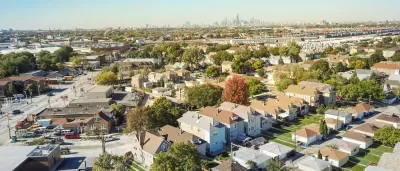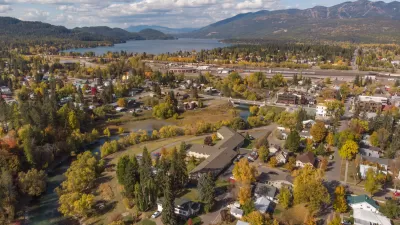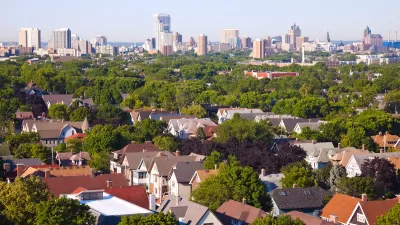An analysis of city-issued permits shows that homeowners in gentrified wards are building accessory dwelling units at much higher rates than those in less well-off communities.

In an evaluation of Chicago’s accessory dwelling unit (ADU) program, “The city’s Housing Department ran the data and found, at this early stage, the program is working in some ways but is challenged in others. It might just be adding expensive units in already expensive neighborhoods.”
As David Roeder reports for the Chicago Sun-Times, The program began as an experiment in “gently” expanding the housing supply to lower rents and create a revenue source for families. The city found that the program has not made an impact in neighborhoods with many vacant lots, nor are ADUs technically permitted to operate as short-term rental units to assuage concerns about transient occupancy.
According to the analysis, “83% of the approved units are slated to go in zones on the North or Northwest sides,” the more affluent parts of the city. This means that “In places plagued by crime and disinvestment, little is happening with ADUs.”
According to Housing Commissioner Marisa Novara, the discrepancy comes as no surprise. “By itself, the program can’t do much about longstanding inequity in real estate. Owners with greater disposable incomes are investing in the units while being in a high-rent area creates an incentive to build.” And while the city has made some grants available for ADU projects, Steven Vance of the Chicago Cityscape real estate information service says it could do more to support ADU construction for homeowners who can’t afford the upfront costs.
FULL STORY: City’s test of additional dwelling units finds most takers in gentrified wards

Alabama: Trump Terminates Settlements for Black Communities Harmed By Raw Sewage
Trump deemed the landmark civil rights agreement “illegal DEI and environmental justice policy.”

Study: Maui’s Plan to Convert Vacation Rentals to Long-Term Housing Could Cause Nearly $1 Billion Economic Loss
The plan would reduce visitor accommodation by 25% resulting in 1,900 jobs lost.

Planetizen Federal Action Tracker
A weekly monitor of how Trump’s orders and actions are impacting planners and planning in America.

Wind Energy on the Rise Despite Federal Policy Reversal
The Trump administration is revoking federal support for renewable energy, but demand for new projects continues unabated.

Passengers Flock to Caltrain After Electrification
The new electric trains are running faster and more reliably, leading to strong ridership growth on the Bay Area rail system.

Texas Churches Rally Behind ‘Yes in God’s Back Yard’ Legislation
Religious leaders want the state to reduce zoning regulations to streamline leasing church-owned land to housing developers.
Urban Design for Planners 1: Software Tools
This six-course series explores essential urban design concepts using open source software and equips planners with the tools they need to participate fully in the urban design process.
Planning for Universal Design
Learn the tools for implementing Universal Design in planning regulations.
Caltrans
Smith Gee Studio
Institute for Housing and Urban Development Studies (IHS)
City of Grandview
Harvard GSD Executive Education
Toledo-Lucas County Plan Commissions
Salt Lake City
NYU Wagner Graduate School of Public Service





























